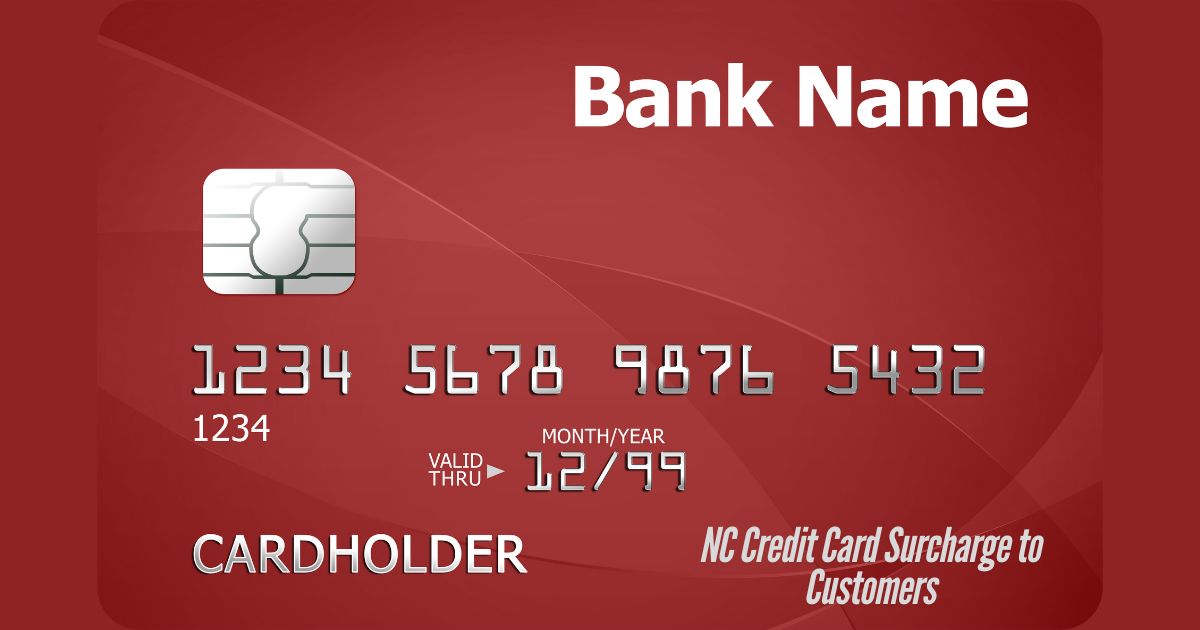Imagine walking into your favorite store, ready to pay for an item, and noticing an additional charge on your receipt—a credit card surcharge. This scenario is increasingly common, leaving many North Carolina residents wondering, “Is this legal?” and “How does it impact me?” If you’ve found yourself asking these questions, you’re not alone.
This article will uncover everything you need to know about the NC credit card surcharge to customers, from its legality to practical tips on how to minimize your costs. By the end of this guide, you’ll understand the rules, your rights as a consumer, and how businesses can balance transparency while implementing these surcharges. Ready to dive in? Let’s get started!
What is a credit card surcharge?
A credit card surcharge is an additional fee that businesses charge customers when they pay using a credit card. The purpose is to offset the transaction fees that credit card companies charge merchants for processing payments. While the fee might seem small—usually between 1.5% and 4% of the purchase price—it can add up over time for both customers and businesses.
Is it Legal to Add a Credit Card Surcharge in North Carolina?
In North Carolina, businesses can legally charge a surcharge to customers who choose to pay with credit cards, but there are specific rules they must follow:
Key Rules:
- Disclosure Requirement: Businesses must inform customers about the surcharge before completing the transaction. This can be done through signage at the point of sale or online checkout.
- Maximum Surcharge Limit: The surcharge cannot exceed the cost of processing the payment, typically capped at 4%.
- Transparency: The surcharge must be clearly itemized on the receipt.
- No Debit Card Surcharges: Surcharges apply only to credit card transactions, not debit cards.
Failure to comply with these rules can lead to penalties and legal action.
Advantages of Credit Card Surcharges for Businesses
- Cost Recovery: Helps businesses recover credit card processing fees.
- Encourages Cash Payments: Reduces transaction costs by incentivizing cash or debit payments.
- Pricing Flexibility: Businesses can maintain competitive pricing for non-credit card customers.
Disadvantages of Credit Card Surcharges
- Customer Dissatisfaction: Surcharges can annoy or alienate customers.
- Complexity: Managing compliance and transparency requirements can be challenging.
- Impact on Sales: Customers may opt to shop elsewhere to avoid the extra fee.
Key Takeaways
- Businesses in North Carolina can apply surcharges to credit card payments, but they must adhere to strict rules.
- Transparency and disclosure are critical to maintaining customer trust.
- Consumers can avoid surcharges by using alternative payment methods, such as cash or debit cards.
Comparison Table: Credit Card Surcharge vs. Other Payment Methods
| Payment Method | Surcharge Applied? | Cost to Consumer | Convenience |
|---|---|---|---|
| Credit Card | Yes (up to 4%) | Higher | High |
| Debit Card | No | Standard Transaction Fee | High |
| Cash | No | No Extra Cost | Medium |
| Digital Wallet (e.g., PayPal) | Variable | Depends on Platform | High |
Actionable Tips for Customers
- Ask About Surcharges: Before making a payment, ask the business if they apply a credit card surcharge.
- Opt for Cash or Debit: Whenever possible, use cash or a debit card to avoid surcharges.
- Reward Programs: Use credit cards with strong rewards programs that offset the surcharge cost.
- Shop Around: Consider alternatives if the surcharge seems unreasonable.
Case Study: Impact of Credit Card Surcharges on Small Businesses in NC
Small businesses in North Carolina have embraced surcharges to cover rising operational costs. For instance, a local coffee shop introduced a 3% credit card surcharge, which allowed them to recover $2,000 monthly in processing fees. However, they also experienced a 5% drop in customer satisfaction ratings. This demonstrates the delicate balance between cost recovery and customer loyalty.
FAQs
1. Are credit card surcharges legal in NC?
Yes, they are legal, provided businesses follow the rules around transparency, disclosure, and fee limits.
2. Can I avoid surcharges in North Carolina?
Yes, you can avoid surcharges by using cash, debit cards, or alternative payment methods.
3. Do all businesses charge a credit card surcharge?
No, not all businesses charge this fee. It depends on their policies.
4. What should I do if I’m charged an undisclosed surcharge?
Report the issue to your credit card issuer or file a complaint with the Consumer Financial Protection Bureau (CFPB).
5. Are there any benefits to paying with a credit card despite surcharges?
Yes, credit cards often offer rewards, purchase protection, and fraud prevention, which can outweigh the cost of a surcharge in some cases.
Final Thoughts
The NC credit card surcharge to customers may feel like an inconvenience, but understanding the rules and your options empowers you to make informed decisions. As a customer, you have the right to transparency and the freedom to choose the payment method that works best for you. If you’ve found this guide helpful, share it with friends or family who might benefit from this knowledge. Let’s spread awareness and make financial decisions a little easier for everyone!
Do you have thoughts or experiences with credit card surcharges? Drop a comment below or check out our related articles for more insights.
